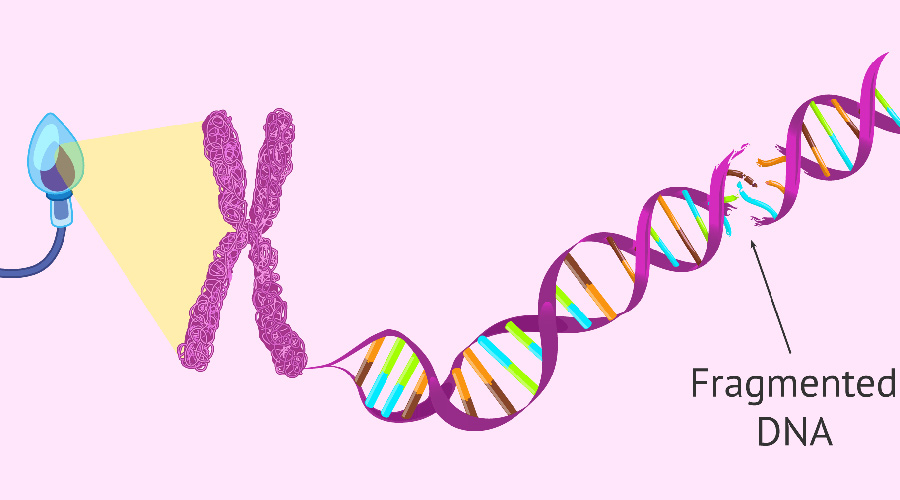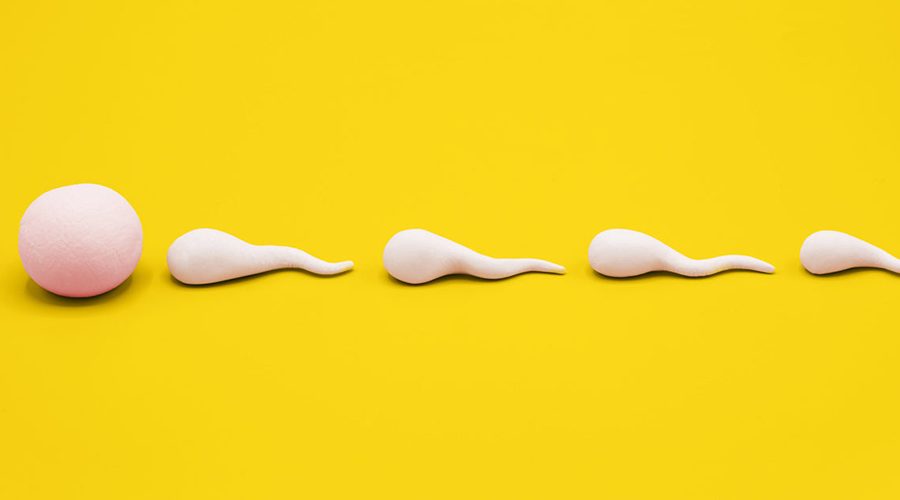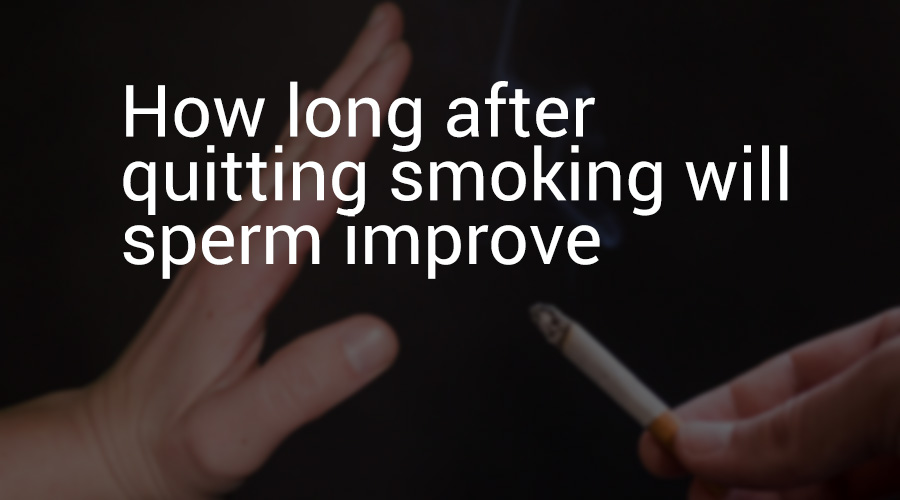For years, smokers have been told that quitting smoking is the key to a healthier lifestyle. But what about fertility? Can quitting smoking improve sperm quality and increase your chances of having a baby? According to recent studies, the answer is yes! In this blog post, we will discuss how long it takes for male fertility to improve after quitting smoking. We will also provide tips for improving your overall health and increasing your chances of becoming a father.
Can Smoking Cause Infertility In Males?
There is a lot of evidence that suggests smoking can cause infertility in males. Studies have shown that cigarette smoke contains over 4000 chemicals, many of which are harmful to sperm cells. Smoking has been linked to decreased sperm count, abnormal sperm morphology, and impaired motility. In addition, smokers are more likely to experience erectile dysfunction and premature ejaculation.
An Effect For The Male Health
Quit smoking, the sooner you will see an improvement in your sperm health. However, even if you have been smoking for many years, it is never too late to improve your fertility. There are many ways to improve your overall health and increase your chances of becoming a father. If you want to improve your fertility, we recommend following these tips:
- Quit smoking
- Eat a healthy diet
- Exercise regularly
- Maintain a healthy weight
- Avoid alcohol and caffeine
- Reduce stress levels improve male fertility.
In general, the longer you smoke, the more damage you do to your sperm cells. However, even if you have smoked for many years, it is never too late to improve your fertility.
Nicotine And Sperm Count

Nicotine has been shown to decrease sperm count and motility. In addition, it can damage the DNA of sperm cells, which can lead to infertility and an increased risk of miscarriage.
Sperm Density
Smoking has also been linked to decreased sperm density. Sperm density is a measure of the number of sperm cells per milliliter of semen. A lower sperm density can reduce your chances of becoming pregnant.
Sperm DNA fragmentation

Smoking has also been linked to increased sperm DNA fragmentation. Sperm DNA fragmentation is a measure of the degree of damage to the DNA in sperm cells. Damage to the DNA can lead to infertility and an increased risk of miscarriage.
Sperm Count
When you quit smoking, your body begins to repair the damage that has been done to your sperm cells. This process takes time, and the improvement of infertility will depend on how long you have been smoking. Studies have shown that quitting smoking can improve sperm count within a few weeks of quitting.
Sperm Motility
Smoking also affects sperm motility, or the ability of sperm to move properly. When you quit smoking, your body begins to repair the damage that has been done to your sperm cells. This process takes time, and the improvement of infertility will depend on how long you have been smoking. Studies have shown that quitting smoking can improve sperm motility within a few weeks of quitting.
How Long After Quitting Smoking Does Male Fertility Improve?

After stopping smoking, male fertility begins to improve right away. It doesn’t matter how long you’ve been smoking; once you quit, your sperm quality will begin to improve. Sperm take approximately 90 days to mature. You’ll significantly boost the health of your sperm and your chances at conception if you quit 3 months before trying to conceive.
According to one research, smoking does not have a negative impact on semen quality in men who quit smoking. Smoking cessation leads to sperm that are healthier and have a higher probability of fertilizing an egg and creating a healthy baby.
If you’re a smoker who wishes to conceive, quitting as soon as possible is advised, and making other modifications to your diet and lifestyle might help boost male fertility.
The Secondhand Smoke Impact
Secondhand smoke in the family is damaging to female fertility. Even if a non-smoker does not smoke in their home, the smoker’s hair and clothing may still contain smoke and harm other family members.
Secondhand smoke can raise the risk of miscarriage, low birth weight, and learning problems once a woman becomes pregnant. There’s plenty of evidence that smoking outside exposes a newborn to respiratory illness, asthma, and SIDS.
How To Quit?

It takes a lot of effort and willpower to quit smoking, which is why it frequently necessitates the assistance and help of others. As you can see from this post, there are several reasons to stop smoking, especially if you want to get pregnant. Quitting smoking might improve your health while also ensuring the long-term health of your child.
Unfortunately, even women who are aware of the dangers of smoking have seen only modest benefits from concerted efforts to quit. It takes time to quit smoking! Individualized counseling on the hazards of smoking was demonstrated in one research to be fairly successful in causing women to give up. The proportion of ladies who gave up smoking increased from 4% at baseline and 24% after twelve months of intervention with individualized advice on the hazards of smoking. Individualized counseling entails offering education and encouragement during clinical visits based on the patient’s individual readiness to quit. Individualized counseling is a low-cost, simple solution for smokers who want to quit.
Fast Improving Male Fertility

Smoking also affects sperm motility, or the ability of sperm to move properly. When you quit smoking, your body begins to repair the damage that has been done to your sperm cells. This process takes time, and the improvement of infertility will depend on how long you have been smoking. Studies have shown that quitting smoking can improve sperm motility within a few weeks of quitting.
Sperm health is not only important for couples trying to conceive, but also for those who are already expecting. Smoking can cause many problems for both the mother and the baby. It is never too late to quit smoking and improve your overall health and fertility. If you are pregnant and want to quit smoking
Conclusion On Nicotine And Sperm Count
In conclusion, stopping smoking is definitely the best thing you can do for your fertility – both male and female. Not only does smoking have negative effects on sperm count and motility, but it also increases the risk of miscarriage, low birth weight, and other health problems. There are many ways to quit smoking, so find one that works best for you and stick with it! You will be glad you did when you finally conceive a healthy baby.
Frequently Asked Questions
How Long After Quitting Smoking Will Sperm Improve?
Sperm health will improve after quitting smoking, but the time it takes for sperm to return to normal varies depending on how long you have been smoking. It is usually within a few weeks of quitting that sperm motility begins to improve.
How Does Nicotine Affect Sperm Count?
Nicotine affects sperm count by damaging the DNA of sperm cells. This damage can lead to infertility and other health problems. Quitting smoking is the best way to improve fertility and overall health.
Is It Possible To Increase Sperm Quality By Quit Smoking?
Yes, quitting smoking can improve sperm quality by repairing the damage that has been done to the sperm cells. This process takes time, and the improvement of infertility will depend on how long you have been smoking.




